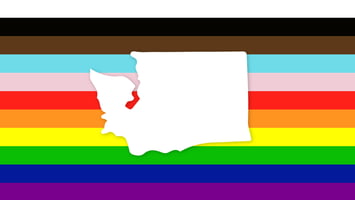Long-running racial inequalities have captured the attention of the news and the nation. Some of us watched developments unfold on television, while others took to the streets in protest.
But we know that no matter whether it’s in the headlines, systemic racism is an urgent imperative that must be addressed. This creates an opportunity and a challenge for current foster families as well as for those interested in fostering a child.
Honest, safe conversations about race help foster children feel more accepted and understood, practice difficult but necessary communication, and process complex emotions and experiences.
And the chances for family reunification improve in an atmosphere where people of all ages practice healthy and inclusive conversations. To help navigate the topic of race, we’ve compiled useful information in the hope that it helps produce meaningful conversations — whether you’re already fostering or thinking about welcoming a vulnerable child.
Register Now to Access Our FREE On-Demand Webinar Course: Foster Parenting in Washington State
Why Conversations About Race Matter
The black community represents 12 percent of America’s total population, yet black children account for 23 percent of all those in foster care. It’s just one disparity that underscores the importance (and inevitability) of race-related conversations in foster homes.

Marcos Huante — a foster parent for 11 years and the Visitation & Respite Coordinator at Skookum Kids — believes conversations about race are an urgent matter of safety. He explains:
“As a person of color, I do not have a choice. It’s important to have conversations about race with children of color because at some point in their life, they will experience racism whether that be directly or systemically.”
Though the entry point into race discussions may shift for caucasian or mixed-race foster families, the purpose is no less vital. Marcos makes clear that it is critical to “bring attention to an issue that [white children] might not have awareness about, and they can be allies when they see injustice.”
Read Next: Why We Need More People Of Color To Become Foster Parents
How To Talk About Race
For foster parents interested in fostering a child, talking about race can be delicate. But Marcos sees discomfort as an incredibly helpful tool for foster parents who lean into a posture of humility and curiosity. “I think one of the most important things to remember is that you are not going to have all the answers — and that is okay,” he says. “This might even create an opportunity for you [and a foster child] to search for the answers together.”

The key, Marcos says, is to start by asking children simple questions about:
- Their culture and traditions
- What their family would do on certain cultural holidays
- What their favorite foods are
It may not be obvious, but simple questions can lead to deeper conversations — especially if those questions reinforce your interest in a foster child.
It’s also important to establish safety. Do your best to reassure a foster child that you’ll protect them, and acknowledge where things are broken, or, “tell them that what you see in this world is not okay,” as Marcos says.
Making a clear distinction between right and wrong will lend further confidence to a child’s conscience and ongoing sense of courage.
Read Next: How To Support Your Foster Child’s Culture When It’s Different From Yours
How To Become An Allied Foster Parent
Washington Fosters offers three tips on ways foster parents can become allies against racial inequality:
- Demonstrate anti-racism: Engage in inclusive activities and reflect on personal bias
- Help recruit families of color: Permanency outcomes improve when foster families have shared racial backgrounds
- Learn to be vocal: Commit to making your concerns about racial inequality heard in your community, to your agency, and to your state legislators
The outcome is positive whether you’re a same-race, mixed-race, or caucasian family. When adults equip themselves with important information about race relations in America, every type of family wins.
Talking about race offers exponential benefits as it strengthens a child’s development while encouraging inclusion. “Change starts with a conversation,” Marcos says. “You could literally save a child's life.”
Don’t let this moment pass you by. Click here to register now for our eight-part webinar to prepare for the complexities and joys of foster parenting.




